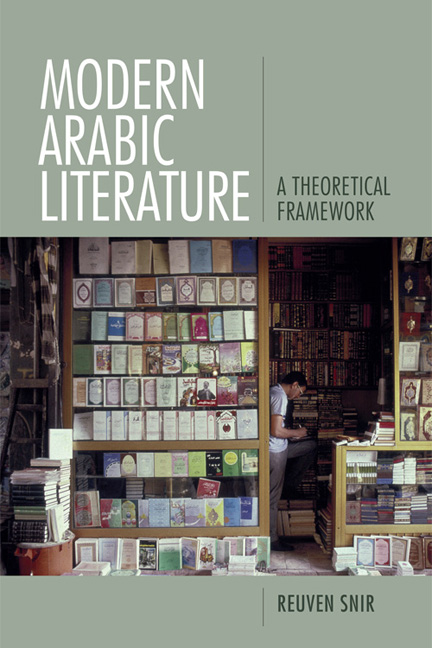Book contents
2 - Literary Dynamics in Synchronic Cross-section
Published online by Cambridge University Press: 03 January 2018
Summary
In presenting the literary dynamics of Arabic literature in the synchronic cross-section, I will treat both canonical and non-canonical literary texts in the following three subsystems: literature for adults; literature for children; and literary translations for adults and children. As I mentioned in the Introduction, the resulting six subsystems can be understood as networks of relationships interacting on various levels. And as we have seen, although fuṣḥā is occasionally used in non-canonical texts and although ʿāmmiyya appears in varying degrees in canonical texts, fuṣḥā remains the basic medium for canonical Arabic literature and ʿāmmiyya remains the basic medium for non-canonical literature.
CANONICAL LITERATURE
Texts for Adults
The inventory of texts in this canonical subsystem includes four main genres:
Poetry
The texts in this genre are written only in fuṣḥā, although dialectical elements are occasionally present. A good illustration of this is the aforementioned encyclopedic dictionary Mu'jam al-Bābaṭīn li-l- Shu'arā’ al-ʿArab al-Mu’ āṣirīn (1995), which includes 1,644 entries by twentieth-century Arab poets. In their introduction, the editors outline three preconditions for inclusion: linguistic perfection (salāma lughawiyya), musical perfection (salāma mūsīqiyya), and aesthetic and artistic level (al-mustawā al-jamālī wa-l- fannī). Writing to the Palestinian poet Fārūq Mawāsī (b. 1941) about why they had decided not to include his work in the dictionary, the Institute of ʿAbd al-ʿAzīz Saʿūd al-Bābṭīn's Prize for Poetic Creation gave the following reasons: defects in meter; the use of dialectical words; and the employment of Hebrew words. Another, more recent, illustration is the TV program Amīr al-Shu’ arāʼ (Prince of Poets), which attracts millions of viewers from across the Arab world. In 2008 the program received applications from 7,000 poets, all of whom had to “show their commitment to the old tradition.” Those who did not conform to classical guidelines were rejected. The program has enormous appeal with the younger demographic, and the contestants themselves must be between the ages of eighteen and forty-five.
- Type
- Chapter
- Information
- Modern Arabic LiteratureA Theoretical Framework, pp. 35 - 99Publisher: Edinburgh University PressPrint publication year: 2017



